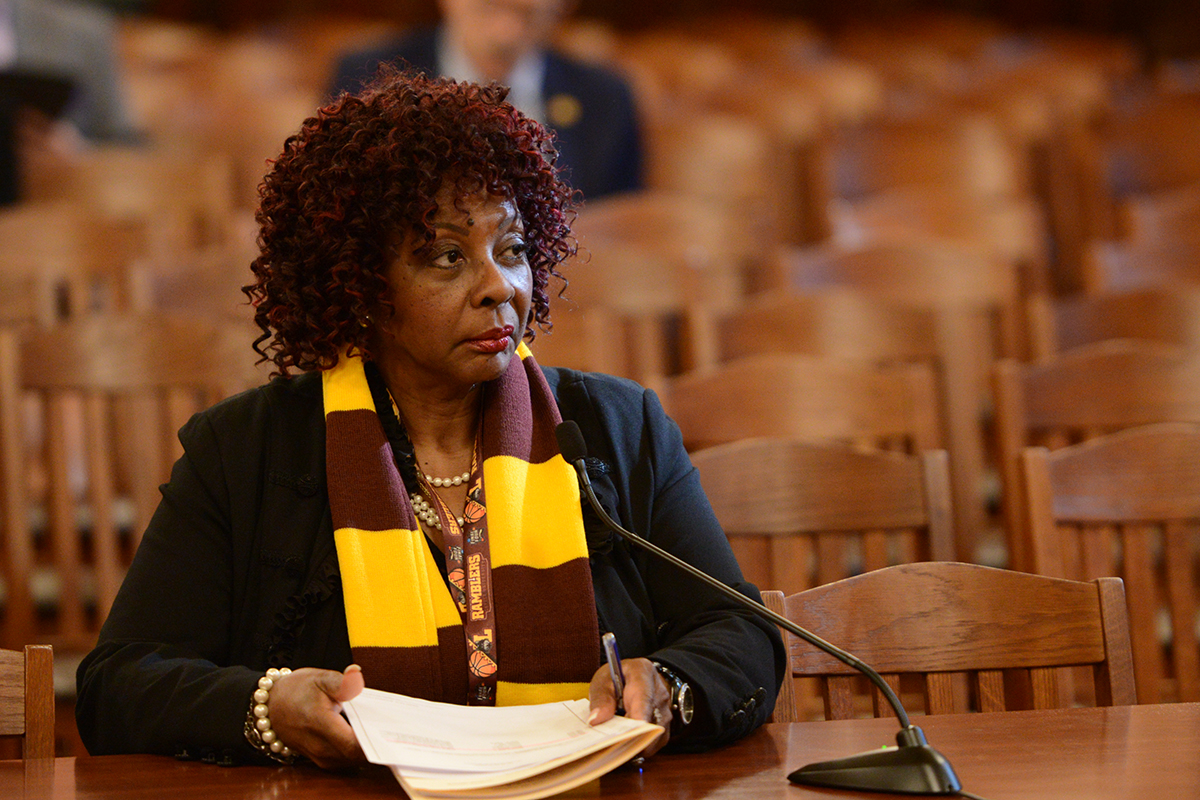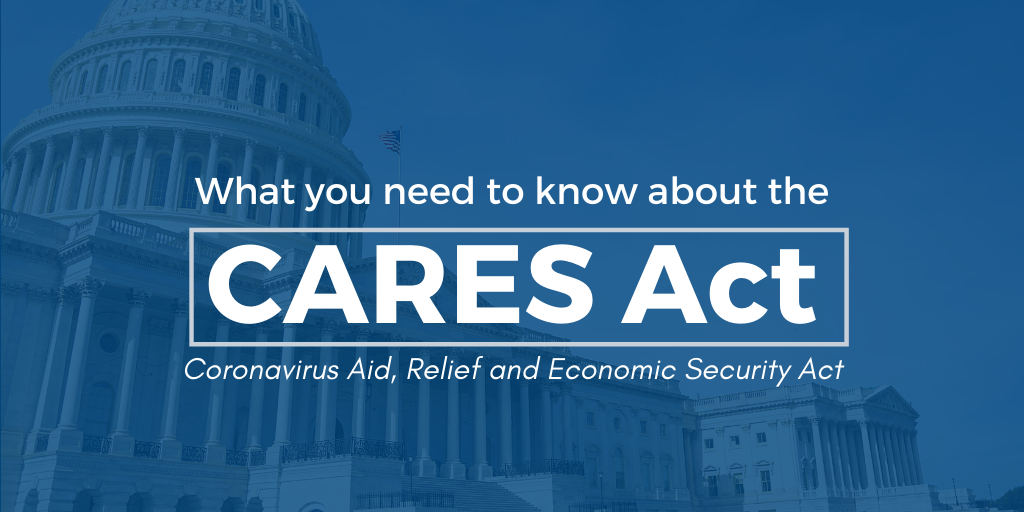Comprehensive update on unemployment benefits
- Details
- Category: Uncategorised

Workers at traditional businesses
On April 6, the Illinois Department of Employment Security began disbursing Federal Pandemic Unemployment Compensation (FPUC) funds, which was the first week that payments were allowed by the federal government. FPUC provides an additional $600 each week in 100% federally funded benefits to anyone entitled to regular state unemployment benefits. FPUC benefits are available for weeks beginning on or after March 29, 2020 and continuing through the week ending July 25, 2020. Pursuant to federal legislation, this $600 will not be retroactively applied to unemployment claims that arose prior to March 29, 2020.
Those who have exhausted their regular unemployment benefits of up to 26 weeks are now eligible for an additional 13 weeks’ worth of 100% federally funded benefits called Pandemic Emergency Unemployment Compensation (PEUC). IDES received guidelines from the U.S. Department of Labor on April 10 and expects to have the program fully implemented the week of April 20.
Additionally, to speed up the process for unemployment claimants, IDES filed an emergency rule which suspended the requirement that a claimant register with Illinois Job Link if their unemployment is due to a temporary lay-off resulting from a temporary closing attributable to the novel coronavirus.
IDES has also waived the one-week waiting period. Before collection of the regular 26 weeks of unemployment benefits begins, a claimant normally experiences a waiting week during which they do not receive benefits. Through an executive order from Governor Pritzker, the waiting week for claimants was entirely waived. This change allows a claimant to receive two weeks of benefits, rather than the usual one week of benefits as their first payment.
Self-employed & gig workers, freelancers, and independent contractors
Beginning May 11, the federal government will allow self-employed workers, freelancers, and independent contractors to apply for the Pandemic Unemployment Assistance (PUA). This program provides a total of 39 weeks of federally funded unemployment benefits to individuals not typically eligible for unemployment benefits, including independent contractors and self-proprietors, who have become unemployed as a direct result of COVID-19.
The Illinois Department of Employment Security has advised that those seeking PUA benefits should file a regular unemployment benefits claim now. While they will not be eligible for regular unemployment benefits, their information will kept on file and processed when the PUA program goes into effect on May 11.
PUA claims will be backdated to the individual’s first week of unemployment, but no earlier than February 2, 2020. Benefits will continue for as long as the individual remains unemployed as a result of COVID-19, but no later than the week ending December 26, 2020. While a program of this magnitude might normally take up to a year to design and implement, IDES plans to get this program online by the week of May 11.
IMPORTANT: Unfortunately, rules implemented by the Federal Department of Labor have made it more difficult than Congress initially intended for gig workers to get benefits. New Labor Department guidance says unemployment benefits apply to gig workers only if they are “forced to suspend operations.” This means, for example, that if Uber drivers are still able to turn on their Uber Driver apps and take trips, despite significantly diminished earning potential due to the shrinking demand for Uber rides, they could be ineligible to receive benefits. The rules being implemented by the Federal Department of Labor are complicating the expansion.
Expanding IDES’ capacity
Through the five weeks from March 1 to April 4, Illinois received more than 500,000 unemployment claims. To put that in perspective, the total number of initial claims for the entirety of 2019 was 489,831. To accommodate the tens of thousands of unemployment claims filed each day over the past month, IDES has taken a number of steps to expand the operating capacity of its call center and website:
- Overhauling the IDES website infrastructure - IDES worked with the Illinois Department of Innovation and Technology to move its website to an entirely new hardware infrastructure with more capacity to handle increased demand. IDES also expedited the process for new users to register and submit a claim, cutting red tape in the validation process. Since these updates, loading times for people using the website are now averaging below one second, and server and mainframe utilization has remained below 50%.
- Expanding the IDES unemployment call center - IDES updated its phone system to increase capacity by 40%, reducing wait times and the number of claimants receiving a busy signal. The daily call center hours have been extended to respond to those waiting in the queue after closure. Additionally, IDES is in the process of establishing an outside call center with an additional 200 agents who will assist in the application and certification process. IDES has also reenlisted recently retired staffers with unemployment benefit insurance experience to work on contract to assist the department during this crisis. These retirees will be provided with laptops to allow them to assist from home.
- Building private partnerships - The administration has sought out partnerships with technology and consulting companies who have stepped up to provide their expertise during this critical time. This includes an exciting partnership with Google AI, Quantiphi, and Carasoft to launch a 24/7 web bot on the IDES website to immediately provide answers to frequently asked questions to people who choose to use the feature. IDES is also working closely with companies like Accenture, IBM, and Deloitte to continue to expand capacity in its existing systems and implement new programs.
Hunter: Racial disparities in COVID-19 deaths highlight decades-long failure to address health inequalities
- Details
- Category: Uncategorised
 CHICAGO - State Senator Mattie Hunter (D-Chicago) issued the following statement in response to data from the Illinois Department of Public Health showing shockingly high and disproportionate rates of COVID-19 related deaths for African-American communities in Chicago and Cook County:
CHICAGO - State Senator Mattie Hunter (D-Chicago) issued the following statement in response to data from the Illinois Department of Public Health showing shockingly high and disproportionate rates of COVID-19 related deaths for African-American communities in Chicago and Cook County:
“As devastating as it is, these results have been years in the making. Higher rates of underlying health conditions, less access to preventative care, barriers to treatment -- these things have burdened the black community for decades. The failure by leaders at every level to take bold action to reduce long-standing health inequities has placed black communities in the eye of the storm, and now those families are paying a profound and unprecedented price.
“Closing the vast health disparities can no longer be an afterthought. It must be an urgent and primary priority for leaders at every level of government, and I stand ready to work with them to deliver targeted healthcare resources and services necessary to build an equitable health care system.”
According to IDPH’s data, of the 86 recorded deaths related to COVID-19 in Chicago, 61, or 70% were of black residents. Blacks make up 29% of Chicago’s population. In Cook County, black residents account for 107 of the 183 COVID-19-related deaths.
Hunter has long advocated for stronger efforts by the state to address health disparities and improve access to comprehensive health care for black and underserved communities.
CARES Act: What you need to know
- Details
- Category: Uncategorised

To address the uncertainty and instability many Americans are facing during this outbreak, the federal government passed the Coronavirus Aid, Relief and Economic Security (CARES) Act, which provides assistance to hospitals, nonprofits, individuals, and businesses.
If you are wondering about what the CARES Act means for you and your community, here’s some information that may help you navigate the legislation:
How will the CARES Act help individuals and families?
- Individuals who earn less than $75,000 annually will receive a direct payment of $1,200, plus an additional $500 for every qualifying child age 16 or under. Married couples who file a joint return and earn less than $150,000 are eligible for up to $2,400 plus an additional $500 for every qualifying child age 16 or under. However, no one must claim you as a dependent on their income tax returns in order to qualify.
- Eligible workers will get an extra $600 per week on top of state unemployment benefits to cover lost wages. Part-time, self-employed, and gig-economy workers are newly eligible for benefits.
- States will receive $3.5 billion in Child Care Development Block Grants to help provide child care to health care workers, first responders, and other essential employees.
- Federal student loan payments will be suspended until Sept. 30.
Will businesses get relief?
- Small businesses and non-profits will have access to $350 billion in forgivable loans to help them retain employees and pay for expenses like rent, mortgages, and utilities.
- The U.S. Small Business Administration is offering $10 billion in economic injury grants of up to $10,000 to provide immediate relief to local business owners. This is in addition to its ordinary Economic Injury Disaster Loan, which provides loans of up to $2 million for working capital. SBA has also established the Debt Relief Program to cover six months of interest payments for small businesses with existing loans.
- The new Paycheck Protection Program will provide loans as an incentive for small businesses to keep workers on the payroll. SBA will forgive PPP loans if all employees are kept on the payroll for eight weeks and the money is used for payroll, rent, mortgage interest or utilities. Starting April 3, 2020, small businesses and sole proprietorships can apply for and receive loans to cover their payroll and other certain expenses through existing SBA lenders.
What about protections for health care workers and first responders?
- Over $120 billion in assistance will go to hospitals and health agencies to help them cover COVID-19 expenses, replenish life-saving supplies, and purchase tests.
Will the CARES Act support local and state governments? - State and local governments will receive $150 billion to pay for new expenses related to COVID-19. The CARES Act also doubles the amount of FEMA funding available to state governments, local governments, and nonprofits.
What kind of benefits will schools receive?
- Schools across the country—including colleges and universities—will receive over $30 billion in emergency support.
Gov. Pritzker issues 'stay at home' order: FAQs and important information
- Details
- Category: Uncategorised
SPRINGFIELD - On Friday, March 20, Illinois Governor Pritzker issued Executive Order 2020-10 requiring all Illinoisans to stay in their homes to prevent the further spread of COVID-19. The order prohibits things like visiting the homes of friends and holding gatherings of any size and closes all nonessential establishments, including most retail, recreation and entertainment businesses. It does NOT prohibit essential activities like going to the grocery store, receiving medical care, or taking your pet for a walk. For more information on what this order means for you, please see the FAQs below.
When does the order take effect?
The order will take effect Saturday, March 21st at 5pm CST.
Where does the Stay at Home order apply?
The Governor’s executive order includes the entire state. Unless you work for an essential business or are doing an essential activity, you should stay home. Work from home is permitted and encouraged where possible.
Is this mandatory or just guidance?
This order is mandatory. To help prevent the further spread of COVID-19 in Illinois and protect our friends, neighbors, and vulnerable populations, please stay home.
How will this order be enforced?
Staying home is critical to reducing the spread of COVID-19 in your community. The Illinois State Police will work with local law enforcement to enforce this order but adhering to the order will save lives and it is the responsibility of every Illinoisan to do their part.
Will the Illinois National Guard be enforcing this order?
No. The Illinois National Guard will be supporting logistics, transportation, and medical response efforts. The Guard will not be enforcing this order. I work in an essential service.
How will the police know I’m allowed to be outside my house?
Law enforcement officials will not stop residents who are on their way to or from work or who are out for necessities like going to the pharmacy or getting groceries, or just taking a walk. People gathering in groups over 10 may be asked to social distance or go home. Illinoisans should abstain from all nonessential activities. Adhering to the order will save lives and it is the responsibility of every Illinoisan to do their part.
Will grocery stores be open?
Yes, essential services will still be operational including, but not limited to:
- Grocery stores
- Gas stations
- Pharmacies
- Police stations
- Fire stations
- Hospitals, clinics and healthcare operations
- Garbage/sanitation
- Public transportation
- Public benefits (i.e. SNAP, Medicaid) hotlines
A full list can be found in the executive order at coronavirus.illinois.gov.
How can I get medical care if I need it?
If you are feeling sick, call your doctor, a nurse hotline, any telehealth hotline set up specifically for COVID-19 (check with your insurance company) or an urgent care center.If you are experiencing symptoms or are currently in isolation, you should stay at home and follow the guidelines provided by your physician. Do not go to an emergency room unless necessary. Nonessential medical care like eye exams and teeth-cleaning should be postponed. When possible, healthcare visits should be done remotely. Contact your healthcare provider to see what tele-health services they provide.
What is the guidance for individuals with intellectual and developmental disabilities?
State Operated Developmental Centers, Intermediate Care Facilities for Individuals with Developmental Disabilities and Community Integrated Living Arrangements will continue to provide care. All in-home direct care staff are considered essential staff and should continue to support individuals in the home setting. If you have any specific questions about your support and services, please reach out to your provider or Individual Service Coordination (ISC) Agency. To receive updated information on DDD services, please sign up for our email database, or to update your contact and service information, please visit www.DDD.Illinois.gov.
What if I still have to go to work?
Unless your work is an essential function (i.e. healthcare provider, grocery store clerk, first responder), you should stay home. If you have been designated essential by your employer, you should continue to go to work and practice social distancing. If you are experiencing symptoms or are currently in isolation, you should stay at home and follow the guidelines provided by your physician.
What if I think my business should be closed but I’m still being asked to operate?
Essential businesses will remain open during the Stay at Home order to provide services that are vital to the lives of Illinoisans. Those businesses include, but are not limited to, pharmacies, certain government offices, day care centers that provide care for the children of essential employees, and restaurants providing take-out meals. If you work for an essential business, you should continue to practice social distancing and should stay at home outside of work hours. If you believe your business is nonessential but are still being asked to show up to work, you may discuss with your employer.
Can I order food/groceries?
Yes, grocery delivery will be available as well as meal-delivery, drive through, and take-out options.
A certain service is essential for me, but the Governor didn’t include it, what do I do?
The Stay at Home order was issued to protect the health, safety and well-being of Illinoisans. While some businesses like fitness centers and salons will be closed, essential services will always be available.
Will public transportation and ridesharing be available?
Public transportation and ridesharing should be used for essential travel only. When possible, walk or drive yourself.
Will roads in Illinois be closed?
No, the roads will not be closed in Illinois. You should only travel if it is essential to your work or health.
Can I take a flight out of state?
Planes and any other form of travel should only be used for essential purposes.
What if my home is not a safe environment?
If it is not safe for you to remain home, you are able and urged to find another safe place to stay during this order. Please reach out so we can help. You may call the domestic violence hotline at 1-877-863- 6338 or contact your local law enforcement.
What about homeless people who can’t stay at home?
The administration wants to protect the health and safety of all Illinoisans, regardless of where they live. State agencies are partnering with community organizations to provide funding and resources to ensure our homeless population has safe shelter.
Can I visit friends and family?
For your safety, as well as the safety of those in your community, you should remain at home to help fight the spread of COVID-19. You may visit family members or friends who need medical or other essential assistance, such as ensuring an adequate supply of food.
What about my pet?
You are allowed to walk your dog and seek medical care for your pet should they require it. Be sure to practice social distancing while out on walks, maintaining at least 6 feet from other neighbors and their pets.
Does the Stay at Home order mean I can’t take my kids to the park?
State parks will be closed during the Stay at Home order. Families will still be able to go outside, including to local parks and outdoor spaces that remain open, and take a walk, run, or bike ride but should continue to practice social distancing by remaining 6 feet away from other people. Playgrounds are closed because they pose a high risk of increasing transmission.
What is the difference between the Stay at Home order and social distancing?
Social distancing is an important first step in preventing the spread of a disease like COVID-19 that allows people to go about their daily activities while taking extra health and safety precautions. The Stay at Home order requires people to remain in their homes unless they have an essential job or are doing an essential task like going to the grocery store or walking a pet.
Can I leave home to exercise?
Yes. Outdoor exercise like running or taking a walk is perfectly acceptable; however, exercise gyms, fitness centers and associated facilities will be closed to reduce the spread of coronavirus. While exercising outside, you should still practice social distancing by running or walking at least six feet away from other people.
Can I pick up meals being provided by my child’s school?
Yes. Schools that provide free food services to students will continue on a pick-up and take-home basis.
Can I go out to do laundry?
Yes. Laundromats, dry cleaners and laundry service providers are considered essential businesses that will remain open.
Can I take my child to day care?
If you are considered an essential worker under the Order, you can take your child to a day care that is licensed on an emergency basis for the purpose of childcare for essential workers. Licensed day care homes for up to 12 children will be closed but may reopen as an unlicensed day care home for up to 6 children.
More Articles …
Page 82 of 140


